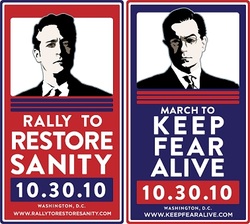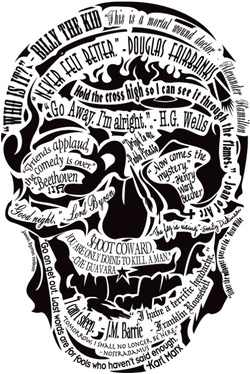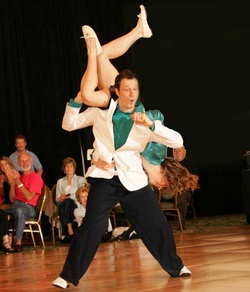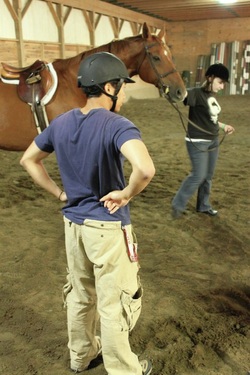 I was originally intending this weekend to attend the rally being staged in D.C. this weekend, hosted by Comedy Central personalities Jon Stewart and Stephen Colbert.
Unfortunately, I was unable to head down to D.C. due to a list of items I need to do here (graduate school isn't all fun and games). So, instead, I am working out of one eye, and watching the live web stream of the rally out of my other. Multi-tasking? Like a boss.
That being said, the intention of the rally is, as you could infer from the titles (and taking into account the tongue-in-cheek character of Stephen Colbert), is to call us back to reason. It seems we exist in tempestuous times with an ever more polarizing political climate. Midterm elections are coming up, and for Democrats it appears as though the shift in power to their side may be rapidly coming to a close, if not now in the near future.
The many people who first helped place many Democratic leaders into power in the first place are disillusioned, the magic that permeated the 2008 campaign wearing off to reveal a pumpkin.
I hate to say I told you so, so I won't. But for us who do prefer sanity, as the rally mentioned above hopes to bring back to the forefront, it was easy to predict this. Let's start at the top: President Barack Obama.
Many of us who supported Mr. Obama during the 2008 presidential campaign made him to be some kind of god. We portrayed him as Superman, one capable of things never before accomplished. We thought him a legend before he had actually accomplished anything at the presidential level, and we annointed him based on potential rather than accomplishment.
It was, to me, insane.
I supported him, and I thought him the best candidate for the job. But the people on his side were simply, for lack of a better word, insane. I just wanted to take so many people by the lapels and shake them, and tell them "No! He's only a man!" Albeit a good one, and well qualified for the position of president.
Unfortunately, it's insanity that helped put him there, rather than real, honest assessment of who he is and what he can do. Please, put away the capes people. You elected a man, not a god.
In these times, we could all use a little bit more sanity, and that applies to all people in all parties. For those people who still think Obama's a god (and I suspect there are fewer of you now than 2008): be reasonable! For those who flip flop from one extreme to the other: be reasonable!
People aren't gods. Neither are they demons. I assure you, Obama can't save the world with his power. At the same time, I assure you, John McCain would not have destroyed the world had he been elected. George W. Bush was not the spawn of satan. Dick Cheney is not an American mini-Hitler. Rush Limbaugh in my opinion is still a douche, but he's entitled to his opinions.
Regardless, let's be reasonable for once. And have reasonable expections as well.
 When one looks in the mirror, a typical concern is the appearance of aging. Little wrinkles that appear at the corners of our eyes and mouths, paths formed along your face by the constant treading of facial expression. A little reminder of the unavoidable: you're older than you were yesterday.
I have a little bit of the opposite of an issue: I look very young. Relatively speaking, I am still young of course. However, compared to what one expects of someone my age, I still look, well, like an undergraduate still trying to work out the most efficient paths from the dorm to campus.
It is the source of great amusement though. Sitting next to the emergency exit doors on airplanes I have been asked on multiple occasions "Sir, are you over 15? Because to sit there, you need to be over 15." I can coolly respond with a chuckle that I am, indeed, over 20, and people more often than not appear taken aback by that fact.
I still get carded at bars, as you would expect, and I imagine I will continue to be carded until I'm well into my 30's.Amusement aside, I do wonder whether my youthful appearance can be a double-edge sword. For all the visually appealing things that come with having a face that seems as though it belongs to a much younger person, certain professions seem to accord respect and achievement with how much wear and tear a face bears. Many people want to see a colleague whose appearance reflects "venerability," where battle scars take the form of wrinkles and crows-feet lining ones skin. One who doesn't look the part of serving in the trenches is doubted to have actually done the time in the trenches, and sadly can be treated more like an unwanted dilettante until further notice.
Maybe I should grow facial hair...
A couple days ago, I probably had the best day of riding I've had in my short career. Given that it's only been about a month it probably doesn't mean much, but damn...
Well, have you ever had those sessions where things just seem to line up, and the key components just fall into place? This applies to pretty much any hobby that takes an ounce of skill (of which riding takes gallons of), so most of us who have hauled our disturbingly obese behinds off the couch to do something interesting can relate.
The reason I'm so pumped now is because the previous week, Buddy had been, well, to put it nicely, a little bit...well, he was being a handful. I couldn't keep him on the rail (which is probably just as much an indictment against my lack of experience as anything), and couldn't even get him to go straight through a standard. Buddy is usually super nice to me, and everyone else for that matter, but last week's session just wasn't our day to work together.
This week's though...wow. For once, I legitimately felt as though we had a mutual interest in doing well. Working on a team with someone who doesn't speak to you through normal modes of communication is very difficult, even more so when you're different species.
Of course, due to my poor inexperienced form, my lower back and left hamstring are a little sore, but I'm willing to accord that to an occupational hazard.
Although I'm not getting paid, so maybe a "hobby-tional" hazard.
Is that a word? If it isn't, it is one now.
I love English.
This will be a very short post, but sometimes I feel that saying things, even small things, can force us to treat them with adequate weight when looked upon in the future.
In my recent consumption of literature, I've been already exposed to a dazzling array of concepts ranging from the sensible to the insane. Academics are extremely creative people (contrary to the popular perception of the stuffy old professor living in the past), and the results can be absolutely mind-boggling.
In many of the ideas I've run across thus far, there is always a little bit of an air of "ad-hoc"-ishness about them. There is a particular problem or set of problems, and we develop solutions to address many of them in as succinctly a manner as possible.
The result often times is a feeling that these solutions will only address these particular problems, and when other related problems crop up the presented solution will fail to account for them appropriately. Fundamentally, it is an issue of scalability.
What's more, we try to give our solutions a theoretical basis so that we can more adequately defend them against charges, and hopefully allow us to use this theoretical grounding to address the aforementioned problems yet to be conceived.
The results we create are what I've termed "Brilliant Bullshit," creative and intriguing answers to difficult questions seemingly dragged out of mid-air that may or may not account for even slight modifications or additions to the original set of problems the solution was intended to address.

It should be readily apparent to people that there is a very strong connection between language and cognition. The way we use words to communicate ideas offers us insight into cognitive states and processes that would not become that obvious were it not for either there repeated occurence in natural language as a "rule" or their occasional, seemingly unregulated occurence as an "exception." Not only is there key insight into the mind that can be found by studying the consistencies that have developed seemingly independently across all human languages (concepts of nouns, verbs, adjectives, etc...), it is important to note the effect words can have on the very cognitive processes long thought to produce natural language.
Our thoughts, feelings, and emotions can be influenced simply by the way an idea is being conveyed to us. For instance, consider the following utterances:
1. "the presentation was unsuccessful"
2. "the presentation was an utter catastrophe"
3. "the presentation was poor"
These all could refer to the exact same presentation, even possibly from the same perspective. In conversation, one could coherently utter all three of these sentences, and it would not be apparent to the listener that there was any form of inconsistency being observed.
However, the influence the word selection has on an observer who is not familiar with the actual presentation to which the sentences refer to is quite stark. (1) makes the presentation seem like it was generally not well accepted by the audience, although by no means on the scale of being terrible. (2) seems to make the presentation look god-awful, as if the presenter was chased off the stage with rotten tomatoes. (3) seems to walk a middle ground between the two. (3) may even be more special than that, referring to how well put together a presentation is as opposed to (1) and (2) that may just refer to how well it is received by the public (as anyone who's done presentation's knows, these are two very distinct concepts).
Point is, the way an object is referred to linguistically influences our mental conception of that object, even if we had direct viewing access to it. A famous study (which I will regrettably fail to cite) illustrates the effects a linguistic description of an accident has on the representation of the severity of the accident in witnesses, even if the witness should have had a first hand account of the accident's severity.
Extending this argument, we can look back at some of history's most influential people. To start with a very stark example, consider Adolf Hitler.
One of the primary architects of evil, he defined what it meant to be "evil" in the 20th century, and continues to do so today long after his death at the end of World War II. He was responsible for millions of deaths and untold suffering during a relatively short period of time.
For all of the evil he caused, he himself probably did not pull to many triggers during that period. Rather, he was able to persuade others to do it for him. He held his country in a state of rapture, his firebrand leadership capturing the heart and eventually brainwashing a nation into blind acceptance of what the rest of the world (and with time the German citizens themselves) would regard as insanity.
What gave him such power over a nation was his tongue. It did not matter how radical his ideas were, or what evil they contained and could potentially result in. It was what he said, his words and their effects, that brought a nation to its feet, and eventually, to arms. It was his words that turned a country against a group of people, and painted them as menaces and degenerates. It wasn't his fingers that pulled the trigger, it was the ideas planted in the minds of his followers with words that did it.
In effect, words were the weapon which he used to nearly destroy Europe, and possibly the world had he succeeded.
It is a weapon we are all armed with, to varying degrees of skill. It is deadly in the most powerful of ways: while it probably can't hurt your body, it can influence the mind in ways you don't even realize.
The pen really is mightier than the sword, and is only going to become more so with the advent of mass communication. In our country, we protect the use of language with law. It is a weapon we are entitled to, and fairly so.
This only means that we, as observers to so much information and ideas, must constantly be on guard concerning the things we read or listen to. Fortunately, we all can use words freely, and understand them relatively well. Unfortunately, understanding the use of words does not guarantee a successful defense against dangerous and harmful ideas.
Language is a weapon. True understanding of the semantics of words can be a shield.
 The statistical revolution changed the face of modern AI, and resulted in a desertion from rule based systems, in favor of the promise that pure statistical processing had. Vast data corpuses are en vogue, processed with counting, totalling, probabilizing, and any other kind of statistical mechanism that yielded incredible performances for particular tasks.
It seems as though there is no limit to what you can do with statistical processing. Natural language, rather than being viewed as an inherently psychological and linguistic domain that struck at the heart of what it means to be conscious at a human-level, has become a stomping ground for blind numbers to run about unchecked. Powerful, simple, and very reliable, it's where the funding is.But, without being long-winded, I'm going to tell you that statistical processing will never realize by itself the grand hopes we once had.
Those researchers in AI once had these dreams of truly trying to understand the human psyche, what it means to be conscious, and a host of other philosophical quandaries that for eons have been the sole domain of armchair thinkers and dreamers. Somewhere along the way, many compromised and followed the money, the promise, and the success of blind numbers.
These numbers are just that though: blind. The first generation of AI researchers failed because they believed that they could continuously throw rules and facts at real world problems, and eventually their store of explicit cases would be so great it would match the human computational capacity and consciousness or something like it would result.Time has shown this to be impossible, and fundamentally flawed.
Why? Because you can't brute force your way to an understanding of human nature!
Humans are intricate, delicate, and defiant of what rules we could ever make explicit it seems. Especially when those rules are...blind.Purely statistical methods will hit a performance ceiling that is the result of the same fundamental philosophical flaw: pure numbers are blind. They do not understand the concept of what it means for something to have edges, to have color, to have a taste or touch or feel. Numbers can encode things, but they can't embody them. Statistical methods can analyze data, but they can never truly generate data themselves. Statistical methods can only pretend to be generative of concepts, but can never truly be generative on a level that we could consider human.
This is not to say that rule based methods are the answer (and in fact, I do not believe that human cognition will ever be solved, be it by rule-based or statistical methods), but to hold statistics as the key is just misleading oneself in to the delusion that success is just around the corner.
Numbers are blind! You can't brute force your way to understanding nature!
The ceiling someday will be hit. Ultimately, you will need rule based systems, with statistics, in order to continue making progress.
That's my prediction.
Understanding the human mind better is not a simple game of blind numbers and blind rules.
It's the game understanding ourselves.
 This is not me. So, once upon a time, I knew how to dance.
Well, sort of. I was on the ballroom dancing team at the University of Michigan. What that equated to was being lumped in with a bunch of goods with significantly more skill than I, and trying desperately to keep count with strange music. Good music, but it's not what you hear on Top-40 radio.
Which is sort of a good thing. I'm not much a fan of annoyingly loud techno anyways. This music at least has a point.
Anyways, a couple of my friends from the grad program persuaded me to join them for an introductory lesson for Swing dance. I was reluctant at first, as it's been a long time. I wasn't that good to begin with, and you know what they say about dancing: if you're no good, better not to get on the dance floor at all. Who says that exactly? I don't know, but it seems like sound advice.
After mulling it over in my head for a while, I decided why the hell not. This form of swing, called "Lindy Hop" if my memory serves me correctly (as it so rarely does these days) is a bit looser than the other forms of dance I've picked up a background in, especially compared to Waltz.
This kind, on the other hand, is much more about having fun and feeling the beat as opposed to trying to look good for a judge. Much more my speed to be honest.
I had a blast. Kids, if you ever get persuaded to give some kind of dance that's not club dancing a shot, take it. You'll be surprised how incredible an experience it is. Not only are the people fun, interesting, and very understanding, they aren't inebriated and grinding on you like they want to mother your babies right on the dance floor.
This is about rhythm, this is about feel and understanding your partner. It's trying to form a connection through steps, the common ground you find in the beat. There is a much deeper form of movement going on than a lot of other experiences.
Plus, it's a great test of self-confidence.
There was a girl standing by the side, clearly skilled as a dancer, but painfully shy. I remarked to my friend "Someone needs to dance with that girl...the look on her face is making me a little bit sad."
He responded: "You do it."
It took a while, but I finally went over there and spoke with a cocky grin on my face: "Do you need a partner? So long as you can put up with my incompetence, we can dance." :-D
Yes, the last sentence was in stark opposition to my facial expression. But by this time, I was just having a blast, so I couldn't care less what my words or face said.
I then proceeded to fulfill my own opinion on my dancing ability, and look like a complete jackass. Was still fun though, and I got to pull off the famous movie scene where the guy leaves the girl on the dance floor with a mysterious dash and persona.
It's all very cloak and dagger in my mind. In everyone else's mind however, it probably just looked awkward.
Whatever.
Point is, swing dance, ballroom dance, all of these kinds of dances that so many people think are "lame" and not modern enough really should give it a chance. Trust me, the experience of club dancing is nothing compared to a lasting impression one leaves when one can dance, you know, actually well.
And the best part: there's no annoyingly loud techno.
 Recently I took up equestrian in my spare time. While spare time doesn't really amount to much these days, it's still plenty enough time to have the fun one desires and forget the work that awaits you upon your return.
Why? Well, I've always wanted to work with horses. Unfortunately, I really didn't have the opportunity or time growing up to partake in such, *ahem* hoity-toity activities. Honestly, that is the perception many people have of those who ride horses.
To some extent, the belief is warranted. Many people who deal with horses regularly have access to financial resources most of us could only dream of. For instance, the barn I train at currently normally charges $50 for a group lesson. That adds up quickly. Thankfully, being a member of the University squad licenses me to a hefty discount (thank you to the good people at RPI of course). Not to mention the equipment, the clothing, etc...
All in all, it's not a cheap activity.
With the discount in hand, I jumped into this new foray. I figured that my athletic background would help me pick it up quickly...kind of. I'm used to walking around on the balls of my feet. Anyone who has any experience with horses always remembers the "keep your heels down" mantra. I still struggle with that.
After my instructor realized I had a background in contact sports, she assigned me, with a little chuckle, this horse named "Buddy," a.k.a. "Bulldog." She told me the reason she picked this particular horse for me was that Buddy has an exceptionally long stride, which means his baseline walk and trot are pretty fast. Okay, very fast. Thus, he can be a little bit rougher on beginners who haven't quite figured out the horses rhythms and how to move with it.
For a while, it was like trial by fire, and as many people will tell you, this is the best way to learn. You learned the rhythms quickly, otherwise your nether regions will hate you later. Not to mention, having poor rhythm frustrates your steed. And trust me, you do not want to frustrate an animal as big as a horse, especially if you're sitting on it.
It seems as though over the last few weeks, with the requisite bumps and bruises along the way, that Buddy and I are beginning to work as a team. I feel almost spoiled by the relationship I have with Buddy, especially witnessing the struggle that some of my teammates have with their steeds.
One of the best things about Buddy is his stall etiquette. He's so calm, so relaxed, a beautiful thing for a beginner who's just learning how to tack quickly and consistently. While other horses seem to hate the process and let their respective riders know their feelings on the subject, Buddy seems to accept it with tacit annoyance. Understandable of course, considering you are strapping him with a bunch of leather so that you can essentially try to control him for the next hour or so.
Regardless, it makes everything easy, and most importantly of all, safe.
Getting used to Buddy has been excellent, especially considering the almost pre-natural match we have. Our instructor commented to me that me and Buddy are "excellent physical matches." Not sure what that meant at the time, but it's gradually becoming more clear to me. Buddy is a fairly young horse, and thus has all of this energy. He wants to jump everything. He wants to go fast. With the correct amount of coffee, we have a similar energy level, so we can mesh in that ultimately, I also want to jump everything, and go fast.
But I must say, the most enjoyable thing I've learned about riding are simple moments with your horse. One of the days after my ride, with Buddy strapped to the walls so I could untack him, whenever I walked away he would try to follow me, only to be held back by his straps.
Maybe he was just trying to make a dash, and had nothing to do with horse-rider relationship. Regardless, even if it is delusory, I like to think that somehow we're getting used to each other.
Today as well, brushing him down at the end, standing in front of him and touching the top of his head... Buddy would look at me with a comfort that wasn't there a few weeks ago. For a few moments, he stuck his nose in my chest...and proceeded to leave a big wet spot in the middle of my shirt.
Thanks Buddy. Glad to see I'm a human kleenex to you.
Never been prouder to be a human kleenex before.
|







 RSS Feed
RSS Feed